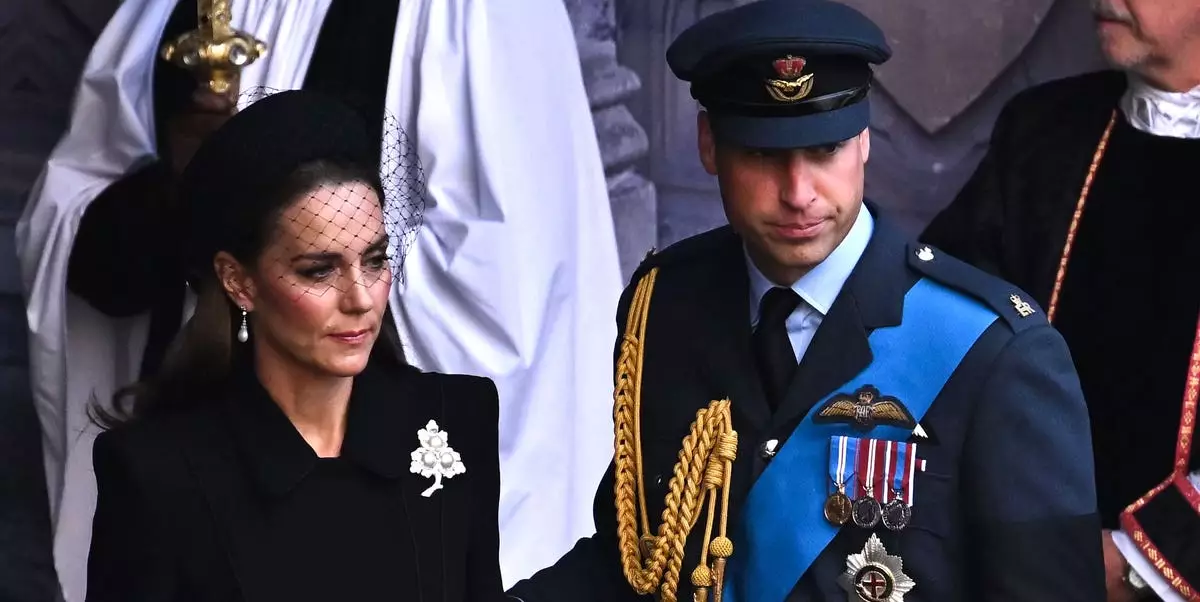In a compelling representation of continuity and tradition, Prince William stepped forward as the royal family’s ambassador at the recent funeral of Pope Francis, held at St. Peter’s Basilica in Vatican City. While King Charles III’s absence stirred discussions regarding royal protocol, William’s presence served as a reminder of the enduring bond between the British monarchy and the Catholic Church, standing as a testament to a relationship defined by mutual respect and shared values, especially evident under the emotional circumstances surrounding the Pope’s recent passing.
Prince William’s attendance reflected not just duty but a deep-rooted acknowledgement of the late Pope’s impact on millions, transcending denominational boundaries and echoing the sentiments of grief felt across various communities. His arrival was marked by solemnity, a fitting representation of the gravity of the occasion and a moment for the Prince to honor a man who dedicated his life to fostering compassion and unity among people of all faiths.
Presidential Protocol vs. Personal Connection
The absence of King Charles has ignited a conversation centered around royal protocol. Traditionally, the Sovereign refrains from attending funerals—a rule that echoes past practices as evidenced by the precedent involving the late Queen Elizabeth II and Pope John Paul II in 2005. It is an essential reminder of the ceremonial boundaries within the royal family, which serve to maintain a suitable distance between personal grief and public duty. As for Charles’ absence, his eloquent tribute to Pope Francis showcased his heartfelt sorrow and respect, encapsulating the profound attributes associated with his leadership while allowing William to carry the symbolic torch.
Charles’ heartfelt words honored Francis’ tireless dedication and the legacy he leaves behind—a pivotal reminder of the Pope’s endeavor to bridge divides and inspire collective action for the common good. The timing of William’s solo attendance, juxtaposed against his father’s statements, underscores the delicate balancing act of duty versus grief within the royal realm.
Lessons from the Past: Historical Context
The historical lens through which royal funerals are viewed can reveal much about the nature of contemporary royal engagements. In 2005, Charles represented then-Queen Elizabeth II at John Paul II’s funeral, an act that only deepened his connection to the Catholic faith. Many commentators believe that such moments shape the fabric of royal diplomacy and inform the public’s perception of the monarchy’s role in global affairs.
While the absence of Kate Middleton, the Princess of Wales, garnered attention, it is crucial to recognize the implications of these choices. William attended the funeral alone—reflecting the royal tradition of allowing the spotlight to rest on ceremonial priorities rather than individual familial dynamics. This aligns perfectly with previous instances in royal history, supporting the notion that often, representations of the crown are less about the individuals and more about the collective legacy they uphold.
A Tribute to Compassion and Service
King Charles’ tribute expressed a universal sentiment—a belief in unity that transcends differences, showcasing the Pope’s commitment to uplifting communities around the globe. This emphasis on shared humanitarian goals reflects the monarchy’s evolving role in fostering a sense of community, particularly in times of immense sorrow.
Such moments remind us that, beyond the pageantry of royal engagements, there exists a profound connection to the values espoused by great leaders. The sentiment shared by Charles resonates with a broader audience, showcasing the responsibility that public figures hold in steering discussions around faith, compassion, and service, whether they are standing in a funeral procession or addressing a global audience.
As the world continues to grapple with loss, learning, and renewal, the Royal Family’s presence at such pivotal events invites all of us to reflect on the impermanence of life while honoring the legacies left behind. William’s role as a modern royal, embodying both duty and humanity, may very well set the tone for future engagements, demonstrating that amidst tradition, there is ample room for personal connection and collective memory. This was more than a royal duty; it was a powerful statement—a reminder of what it means to be a leader in a world seeking hope and healing.

